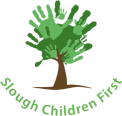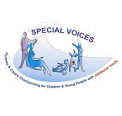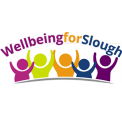Glossary and acronyms - SEND

Check the sections below for SEND language definition and jargon buster.
A - B
- Academy - a publicly-funded school that has freedom from local authority control.
- Act - a law that has been passed by Parliament.
- ADD - Attention Deficit Disorder.
- ADHD - Attention Deficit Hyperactivity Disorder.
- Attention Deficit Hyperactivity Disorder - a medical diagnosis related to the child’s behaviour and attention span, which can affect their ability to concentrate and learn.
- Admissions - the team who organise places in primary and secondary schools.
- Advocacy - support for people to express their views.
- Advocate - someone who helps another person (for example: a child or their carer) to make decisions and have a voice.
- AWPU- Age Weighted Pupil Unit. It is the amount of money that every maintained school receives for each pupil that is on the school roll, whether or not they have SEN. The value of the AWPU varies from one local authority to another and according to the age of the pupils.
- Annual Review - under the Children and Families Act 2014 local authorities must carry out a review of every EHC plan at least once every 12 months.
- Appeal (also check SEND Tribunal) - in law, a SEND appeal is a formal request for a court to re-examine a decision made by local authority, about an EHC needs assessment or plan.
- Apprenticeships - Learning at work through an apprenticeship scheme means getting a wage at the same time. It is paid for by the government and the employer.
- ASD / ASC - Autistic Spectrum Disorder/ Autistic Spectrum Condition.
- Assessment - a means to collate information in order to better understand a child or young person and their needs, and from this work out how best to teach them.
- Augmentative and alternative communication (AAC) - different methods that can be used to help people with disabilities communicate with others, for example using signing, speech synthesisers, symbols, objects of reference or a combination of these.
- BSL - British Sign Language.
C - D
- CAMHS- Child and Adolescent Mental Health Services. Services that support children and young people with mental health needs.
- Carer - anyone who is unpaid and cares for a family member who can’t cope without their support.
- Children and Families Act 2014 - this law came into force on 1st September 2014. Part 3 of the Act sets out the new law on special educational needs and disability. The Act is supported by the SEND Regulations 2014 and the SEND Code of Practice: 0-25 years.
- Child in Care (CIC) also known as looked after child (LAC) - a child who is looked after by a local authority after a court has granted a care order.
- Child in Need (CIN) - a child who needs help from local authority services to be healthy or develop as they should.
- Clinical Commissioning Group (CCG) - CCGs are groups of professionals that work together to commission health services, ensuring there is sufficient capacity contracted to deliver the necessary services to people.
- Child Development Centres - they offer a team approach in partnership with parents, for assessment, diagnosis and ongoing treatment as appropriate.
- Code of Practice (CoP) - Check SEND Code of Practice.
- Cognition and learning - The mental process of knowing, including aspects such as awareness, perception, reasoning, and judgement.
- Cognitive ability - thinking and reasoning abilities. A term often used by psychologists instead of intelligence.
- Collaborative - working with others to do a task and to achieve shared goals.
- Commissioning - the process that ensures the right people and services are in the right place at the right time for all children, young people and families. It is the process by which services are planned, investment decisions are made, delivery is ensured and effectiveness is reviewed.
- Comprehension - understanding of spoken or written material or practical situations.
- Council for Disabled Children - the Council for Disabled Children is part of the National Children’s Bureau family. They provide a collective voice that champions the rights of children, young people and their families and challenges barriers to inclusion.
- DDA - Disability Discrimination Act.
- Decision Support Tool - the form that is used by the nurse or other health worker who does the assessment to see if a person is eligible for NHS Continuing Healthcare.
- Developmental delay - a slower rate of development where a child learns more slowly than most children of the same age.
- DfE (Department for Education) - they are responsible for education and children's services.
- Differentiated curriculum - children make progress at different rates and have different ways in which they learn best. Teachers take account of this when planning their lessons, organising the classroom and choosing books and materials. They are then able to choose from the range of available approaches and resources to make a selection which best fits the learning styles of a particular child or group of children.
- Direct payment - a payment made directly to a parent or young person to purchase specific services. Under the Children and Families Act 2014 a Direct Payment may be made as part of a Personal Budget so that the parent or young person can buy certain services that are specified in their EHC plan. Direct payments can only be used for provision provided on the school or college premises if the school or college agrees.
- Disagreement resolution - local authorities must provide independent disagreement resolution to help parents and young people resolve disputes with local authorities, schools and other settings about SEND duties and provision.
- Disabled - a person is disabled if he or she has a physical or mental impairment, which has substantial and long-term effect on his/her ability to carry out day-to-day activities. The definition also covers pupils with sensory or intellectual impairments, those with a learning disability, severe disfigurements or progressive conditions.
- Dyscalculia - a condition associated with specific learning difficulties in Maths. In its simplest terms this means that sufferers have problems with even simple arithmetic.
- Dyslexia - a learning difficulty that primarily affects the skills involved in accurate and fluent word reading and spelling. Characteristic features of dyslexia are difficulties in phonological awareness, verbal memory and verbal processing speed.
- Dyspraxia - a common developmental disorder affecting fine and/or gross motor coordination in children and adults. It may also affect speech.
E - F
- EHC plan (Education, Health and Care Plan) - a legal document that sets out a child’s needs and the specific help he or she must receive.
- Early Help - the first response given when a child, young person or family needs extra help. It is the way that all services and professionals work together to support the needs of families.
- Early Years Team - the Early Years Team works with early years settings to support them to develop their practice.
- Early Years Foundation Stage (EYFS) - the early years foundation stage (EYFS) sets standards for the learning, development, and care of children from birth to five years old. All schools and Ofsted-registered early years providers must follow the EYFS, including childminders, preschools, nurseries and school reception classes.
- Early Years Inclusion Funding - additional funding that a pre school age child can receive if they have complex additional needs. It supports the child’s Inclusion within an early years setting.
- Early Years Inclusion Pathway Planning (EYIPP) - an Early Years Inclusion Pathway Planning (EYIPP) meeting can form the first phase of planning towards the child's education journey without the need for a statutory assessment. The plan is based on early identification to make sure support is effectively planned and implemented.
- Early years setting - early years settings can include childminders, day nurseries, pre-schools and foundation stage units.
- Ears, Nose and throat (ENT) – ears, nose and throat.
- Education Act 1996 - Part IV of the Education Act 1996 was the legal framework for SEN. Part 3 of the Children and Families Act 2014 now replaces this legislation.
- Education Funding Agency (EFA) - The EFA is the government agency that funds education for learners between the ages of 3 and 19, and those with learning difficulties and disabilities between the ages of 3 and 25. The EFA allocates funds to local authorities, which then provide the funding for maintained schools. The EFA directly funds academies and free schools.
- Education, Health and Care (EHC) Needs Assessment - local authorities must carry out an EHC needs assessment if a child or young person may need an EHC plan. The assessment is a detailed look at the special educational needs that the child or young person has and what help he or she may need in order to learn.
- An Education Health and Care plan - an EHC plan describes the special educational needs that a child or young person has and the help that they will be given to meet them. It also includes the health and care provision that is needed. It is a legal document written by the local authority and is used for children and young people who have high support needs.
- Educational Psychologist - an expert in the educational needs of children. They assess children and young people and advise parents, schools or the local authority about how to meet a child’s educational needs.
- Elective Home Education (EHE) - choosing to educate your child or young person at home.
- English as an Additional Language (EAL) - a term that applies to children and young people whose first language is not English.
- Epilepsy - a health condition that affects the brain and causes seizures.
- Equality Act 2010 - the Equality Act 2010 legally protects people from discrimination in school, the workplace and in wider society. It replaced previous anti-discrimination laws with a single Act, making the law easier to understand and strengthening protection in some situations. It sets out the different ways in which it’s unlawful to treat someone.
- Exclusion - when a child is removed from school by the head teacher for either a fixed term (suspended) or permanently (expelled).
- First Tier Tribunal (SEN and disability) - the First-tier Tribunal (Special Educational Needs and Disability) is a legal body. The Tribunal hears appeals from parents of children with SEN, and young people with SEN, about EHC needs assessments and EHC plans.
- Fixed Term Exclusion (FTE) - a temporary exclusion for a set number of days after which a child or young person can return to school. A child can only be removed for up to 45 school days in one school year.
- Foetal alcohol syndrome disorder (FASD) - a condition caused by the mother consuming alcohol, resulting in abnormal brain development before birth.
- Fragile X Syndrome - the most common cause of inherited learning difficulties after Down’s Syndrome.
- Further Education (FE) - education for young people who have left school (are over 16) but are not studying for a degree.
G - H
- Governors - a mix of parents, staff and local people who help a school by looking at policies, budget spending, staff recruitment and the way the school is run.
- Graduated approach - the SEND Code of Practice says that schools should follow a graduated approach when providing SEN Support. This is based on a cycle of: Assess, Plan, Do, Review.
- Health Visitor (HV) - a nurse working in the community to support the health and development of children under 5 and their families, including giving information, support and care.
- Hearing Impaired. (HI) - pupils with a hearing impairment range from those with a mild hearing loss to those who are profoundly deaf.
- Higher Level Teaching Assistant (HLTA) - an experienced teaching assistant who plans and delivers learning activities under the direction of a teacher, and assesses, records and reports on pupils’ progress.
I - J
- Independent Parental Special Education Advice (IPSEA) - a registered charity that offers free and independent legally based information, advice and support to help get the right education for children and young people with all kinds of special educational needs and disabilities.
- Independent Review Panel (IRP) - An independent panel that the local authority must arrange if a parent requests a review of the decision by a school governing body to permanently exclude a child.
- Information Advice and Support Service (IASS) – the service gives support to parents and carers of children and young people with special educational needs and disabilities. There is an IAS service in every county in England. Usually referred to as SENDIASS.
K - L
- Key Stage - the national curriculum is organized into blocks of years called ‘key stages’. Early Years Foundation Stage – age 0-5 (Early Years setting, Nursery and Reception). Key Stage one – age 5-7 (Years 1 and 2), Key Stage two – age 7-11(Years 3, 4, 5 and 6), Key Stage three – age 11-14 (Years 7, 8 and 9), Key Stage four – age 14-16 (Years 10 and 11), Key Stage five – age 16-18 (Sixth form).
- Keyworker - someone who provides children, young people, and parents with a single point of contact to help make sure the support they receive is coordinated. A keyworker could be provided directly by a local authority or local health organisation, a school or college, or from a voluntary or private sector body.
- Lacking capacity - is when a person is not able to make a decision for themselves. Just because someone finds it hard to make one decision, it does not mean they are not able to make other decisions.
- Lead professional - a professional who takes the lead to coordinate support and be a single point of contact for a family, when lots of services are involved with the child or family and a joined-up approach is needed.
- Learning difficulty - difficulties in gaining knowledge and skills to the level normally expected of those of the same age.
- Learning disability - a reduced intellectual ability and difficulty with everyday activities, such as household tasks or managing money. This affects someone for life.
- Learning mentors - school staff who work with school and college students to help them engage more effectively in learning and improve achievement.
- Learning Support Assistant (LSA) - someone who works under the direction of a class teacher to help children with their learning or behaviour.
- Local Authority (LA) - local authorities are administrative offices that provide services within their local areas. There are 152 across England which are education authorities.
- Local Offer - the Local Offer, published by every local authority, tells you what support is available for children and young people with special educational needs and/or disabilities, and their families. It includes information about education, health and care provision. It also gives information about training, employment and independent living for young people with special educational needs and/or disabilities.
M - N
- Makaton - is a unique language programme that uses symbols, signs and speech to enable people to communicate. It supports the development of essential communication skills such as attention and listening, comprehension, memory, recall and organisation of language and expression.
- Mainstream School - this is a school that provides education for all children, whether or not they have special educational needs or disabilities.
- Managed move - a voluntary agreement between a school, parents/carers and a pupil, to change school under controlled circumstances. Managed moves are often used as an alternative to permanent exclusion.
- Mediation - is a type of disagreement resolution. Every local authority must provide independent mediation to help parents and young people resolve disputes with local authorities about: a decision not to carry out an Education, Health and Care (EHC) needs assessment, a decision not to draw up an EHC plan, the content of a final EHC plan or amended plan, a decision not to amend an EHC plan, a decision to cease to maintain an EHC plan. Mediation must also be provided on the health and social care elements of an EHC plan.
- Mediation advice - the purpose of mediation advice is to give information about what mediation involves. Parents or young people who wish to register an appeal with the First Tier Tribunal (SEN and Disability) must first seek mediation advice. The advice must be factual and unbiased. After mediation advice has been given the parent or young person can choose whether they wish to go to mediation. However, it is not necessary to seek mediation advice if the appeal is only about the name of the school, or college named on the plan, the type of provision specified in the plan or the fact that no school or other institution is named.
- Mental Capacity Assessment (MCA) - a mental capacity assessment is carried out to see if someone is able to make decisions. If someone cannot make a decision by themselves, they should still be supported to have their say.
- Moderate Learning Difficulties (MLD) - describes a general level of academic attainment that is significantly below that of other children of the same age. There may be difficulty acquiring basic literacy and numeracy skills, speech and language and difficulties and poorly developed personal and social skills. Pupils should only be recorded as having a MLD if additional educational provision is being made to help them access the curriculum.
- Modification - amendment or alteration of a programme of study, attainment target, assessment or any other component of the curriculum so that a child can access that area of the teaching and learning.
- Multi-agency working - practitioners from different sectors and professions working together to provide joined-up support for children, young people and families.
- Must - the SEND Code of Practice says in Section i of the Introduction: …where the text uses the word ‘must’ it refers to a statutory requirement under primary legislation, regulations, or case law. This means that wherever the term ‘must’ is used all the organisations listed in Section iv of the Introduction to the Code have a legal duty to do what the Code says.
- Multidisciplinary - involving different areas of expertise from various professionals, for example, from Education, Health or Social Care.
- Multi-sensory impairment (MSI) - pupils with multi-sensory impairment have a combination of visual and hearing difficulties. They are sometimes referred to as deafblind but may have some residual sight and/or hearing.
- National Curriculum - this sets out a clear, full and statutory entitlement to learning for all pupils, determining what should be taught and setting attainment targets for learning. It also determines how performance will be assessed and reported.
- NHS Continuing Healthcare (CHC) - NHS Continuing Healthcare is the name given to a package of care that is arranged and funded solely by the NHS for individuals aged 18and over who are not in hospital but have complex ongoing healthcare needs.
- Non-Maintained Special School - schools in England approved by the Secretary of State under section 342 of the Education Acct 1996 as special schools which are not maintained by the state but charge fees on a non-profit-making basis. Most non-maintained special schools are run by major charities or charitable trusts.
- Not in Employment, Education or Training (NEET) - a young person (16 or older) who is no longer at school or college or who isn’t working or being trained for work.
- Non-statutory - something that is not required by law.
- Notional SEN Budget - the Notional SEN budget ('NSB') is an identified amount of money within a school’s overall budget that is to contribute to the special educational provision ('SEP') of children with SEN or disabilities. It is allocated to schools from a LAs School’s Block. It is not ring-fenced and schools are expected to provide SEN support from the whole of their budget.
O - P
- Occupational Therapist (OT) - a trained professional who provides practical support to help people overcome barriers that prevent them from doing the activities that matter to them, including help to be more independent.
- Off Rolling - the practice of removing a pupil from the school roll without a formal, permanent exclusion or by encouraging a parent to remove their child from the school roll, when the removal is primarily in the interests of the school rather than in the best interests of the pupil. Off-rolling in these circumstances is a form of ‘gaming’. There are many reasons why a school might remove a pupil from the school roll, such as when a pupil moves house or a parent decides (without coercion from the school) to home educate their child. This is not off-rolling. If a school removes a pupil from the roll due to a formal permanent exclusion and follows the proper processes, this is not off-rolling.
- Ofsted - the organization that inspects and regulates settings that care for children and young people and services providing education and skills for learners of all ages.
- Outcome - section 9 Paragraph 66 of the SEND Code of Practice says: An outcome can be defined as the benefit or difference made to an individual as a result of an intervention. It should be personal and not expressed from a service perspective; it should be something that those involved have control and influence over, and while it does not always have to be formal or accredited, it should be specific, measurable, achievable, realistic and time bound (SMART). When an outcome is focused on education or training, it will describe what the expected benefit will be to the individual as a result of the educational or training intervention provided.
- Parent Carer Forum - a Parent Carer Forum is a representative local group of parents and carers of disabled children who work with local authorities, education, health and other providers to make sure the services they plan and deliver meet the needs of disabled children and families.
- PECs - stands for Picture Exchange Communication System. It is an alternative communication system developed to help children affected by autism convey their thoughts and needs.
- Peer support - peer support is when other pupils provide emotional, social or practical help to each other. Pupils are usually trained to provide this support.
- Personal assistant - personal assistants are approved support staff who offer a range of individual support and care to disabled children and young people.
- Personal budget - is money set aside for a young person or a parent by their local council. It can be used to buy some of the support a child or young person gets in their education, health and careplan. Sometimes a local council will keep this money and use it to buy some support that a young person or their family might need. Parents of children with an EHC plan and young people with an EHC plan can choose whether or not they wish to have a Personal Budget.
- Personal Education Plan (PEP) - an element of a care plan maintained by a local authority in respect of a looked after child, which sets out the education needs of the child.
- Personal Health Budget - is a set amount of money to spend on the support and services that will meet your health and wellbeing needs, as agreed between you (or your representative) and your local NHS team.
- Physical disability (PD) - disabilities that limit mobility. Among the causes are congenital conditions, accidents, or injury.
- Preparing for Adulthood (PFA) - the transition of a young person leaving childhood and preparing to become an adult.
- Profound and Multiple Learning Difficulties (PMLD) - someone with more than one disability, with the most significant being a learning disability. Many children diagnosed with PMLD will also have a sensory or physical disability, complex health needs or mental health difficulties. Pupils with PMLD need a high level of adult support both for their learning needs and for their personal care.
- Provision map - a provision map is a way of documenting the range of support available to pupils with SEN within a school.
- Pupil premium - additional funding for schools to spend in order to raise the achievement of disadvantaged pupils.
- Pupil Referral Unit (PRU) - this is a school established and maintained by a local authority that is specially organised to provide education for children who are excluded, sick or otherwise unable to attend mainstream school.
Q - R
- Reasonable adjustments - reasonable adjustments are changes schools and other settings are required to make which could include: changes to physical features – for example, creating a ramp so that students can enter a classroom or providing extra support and aids (such as specialist teachers or equipment).
- Respite care/short breaks - involves short term or temporary care of the sick or disabled for a few hours or weeks, designed to provide relief to the regular caregiver.
S - T
- Safeguarding - the process of identifying children and young people who have suffered or who are likely to suffer significant harm, and then taking the appropriate steps to keep them safe.
- School SEN Support – a category for young people (0-25) who need extra specialist support but not an EHC plan. This may take the form of additional support from within the school or require the involvement of specialist staff or support services. The purpose of SEN support is to help children achieve the outcomes or learning objectives that have been set for them by the school. Schools should involve parents in this process.
- SEND Code of Practice - this is the statutory guidance that supports Part 3 of the Children and Families Act 2015. It tells Local authorities, early years settings, schools, colleges, heath and social care providers and others what they must and should do to identify, assess and provide for children and young people with SEN or disabilities.
- Severe Learning Difficulty (SLD) - pupils with SLD have significant intellectual or cognitive impairments. This will have an impact on their ability to participate in the school curriculum without support.
- Social, Emotional and Mental Health (SEMH) - social, emotional mental health difficulties, usually resulting in behaviour difficulties, that present a barrier to learning and participation.
- Special Educational Needs and Disability Information, Advice and support Service (SENDIASS) - offer free information, advice and support to parents and carers of children and young people with special educational needs, and the young people themselves. They are statutory services which means there has to be one in every local authority.
- Special Educational Needs (SEN) - A child or young person who has special educational needs may: find it harder to learn than other people their age, face challenges that make it hard to go to school or college, need extra or different support to learn.
- Special Educational Needs and Disability Tribunal (SENDIST) - a panel set up to arbitrate when disagreements occur between parents and the local authority about then provision for a pupil’s Special Educational Needs, or when a parent alleges discrimination on the grounds of a child’s disability.
- Special Educational Needs Co-ordinator (SENCo) or Special Educational Needs and Disability Co-ordinator (SENDCo) - is the person at a school who is in charge of making sure students who have special educational needs or disabilities get the support they need.
- Specialist services - services provided by the local authority or health service to provide specialised services for children with acute or high level needs.
- Specific Learning Disabilities (SpLD) - an umbrella term used to cover a range of frequently co-occurring difficulties, usually dyslexia, dyspraxia, dyscalculia, ADD and ADHD.
- Speech, Language and Communication Needs (SLCN) - a wide range of difficulties related to all aspects of communication in children and young people. These can include difficulties with speech, understanding what others say, and using language socially.
- Statutory assessment - a process of assessment referred to as an education, health and care needs assessment carried out by the Local Authority for a child or young person 0-25. An EHC needs assessment is a detailed look at a child’s special educational needs (SEN) and the support her or she may need in order to learn.
- Supported Internships - are a structured study programme based primarily at an employer. They enable young people aged 16-24 with a statement of SEN, or an Education, Health and Care plan to achieve sustainable paid employment by equipping them with the skills they need for work, through learning in the workplace.





